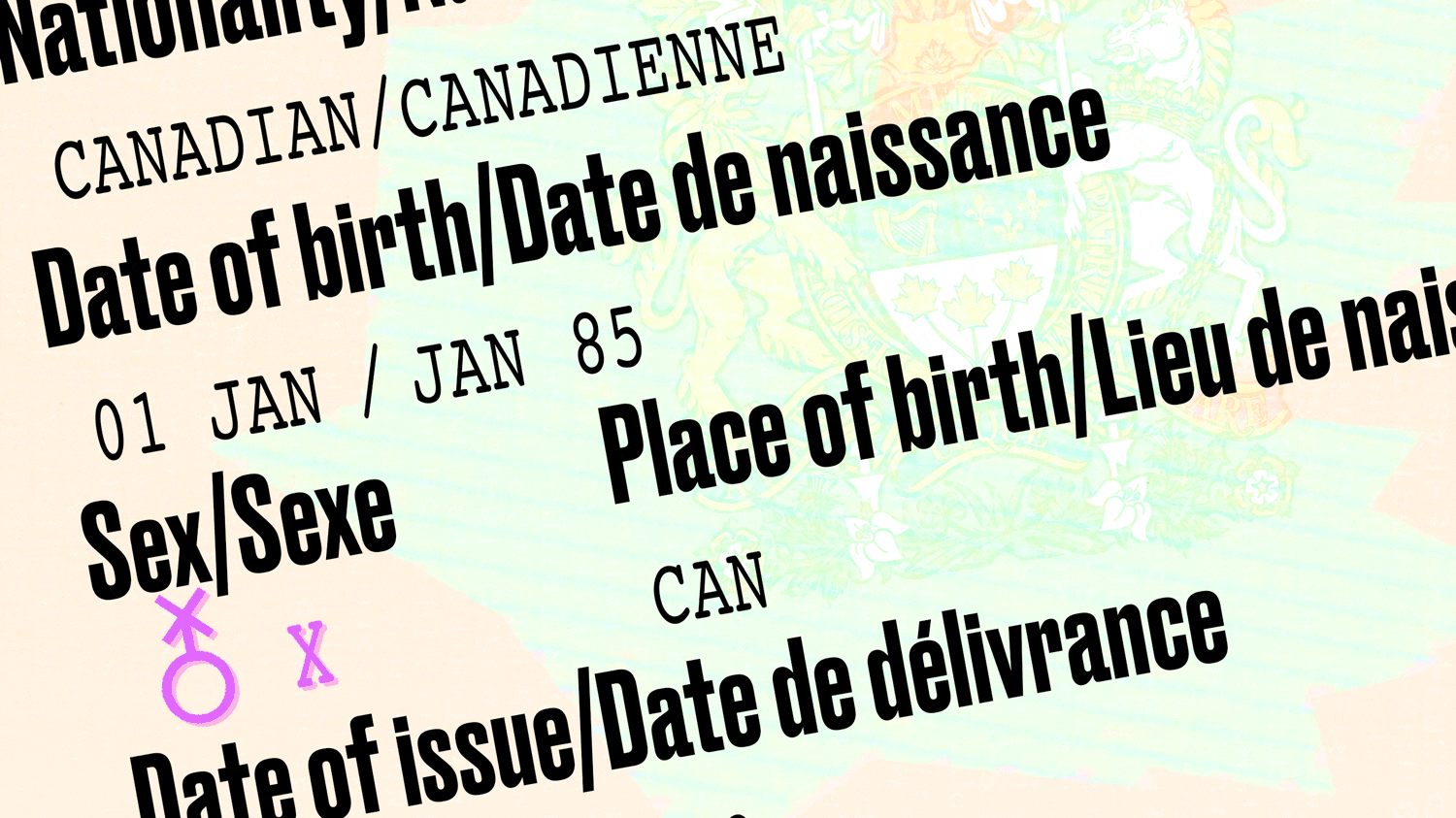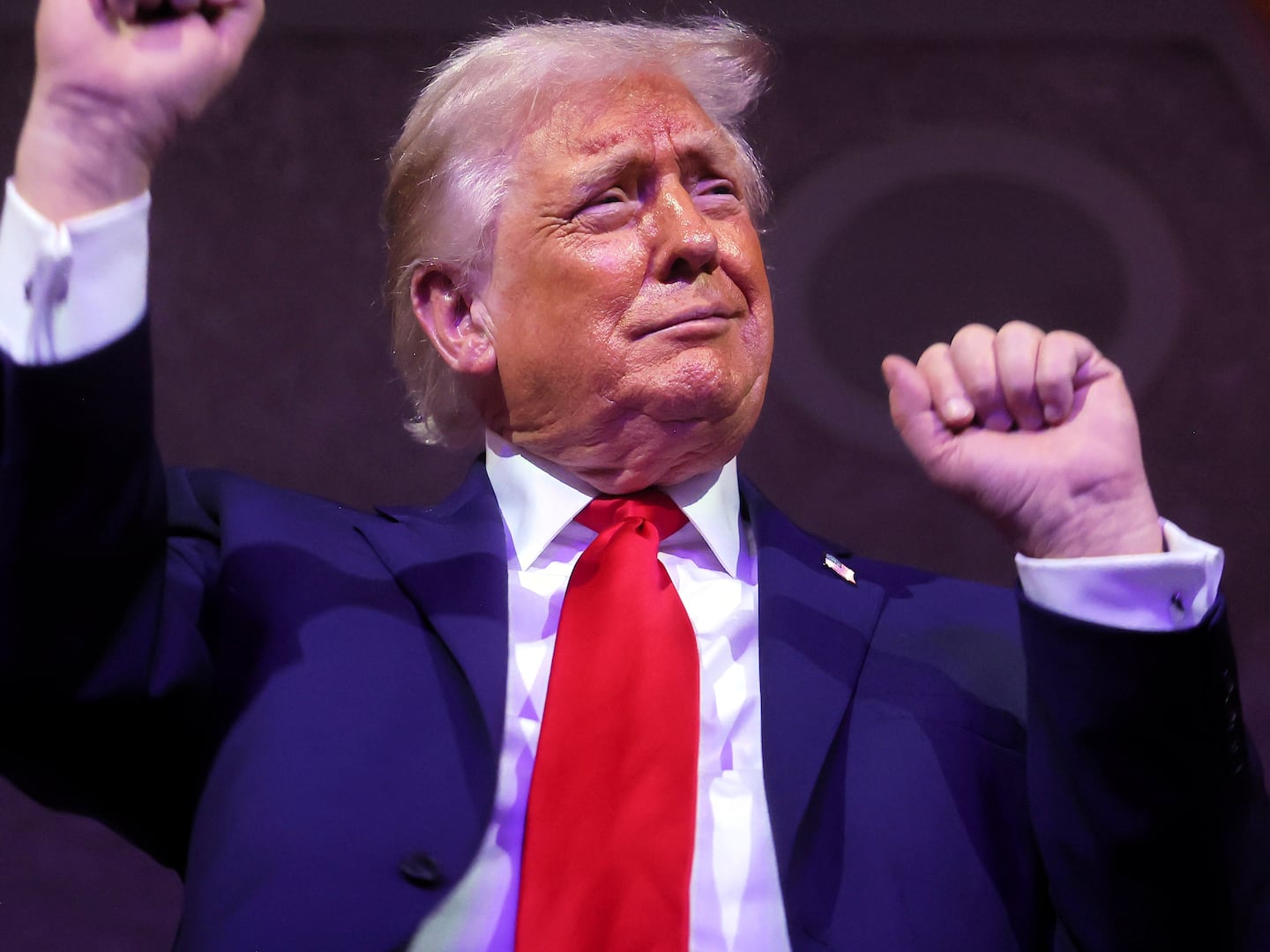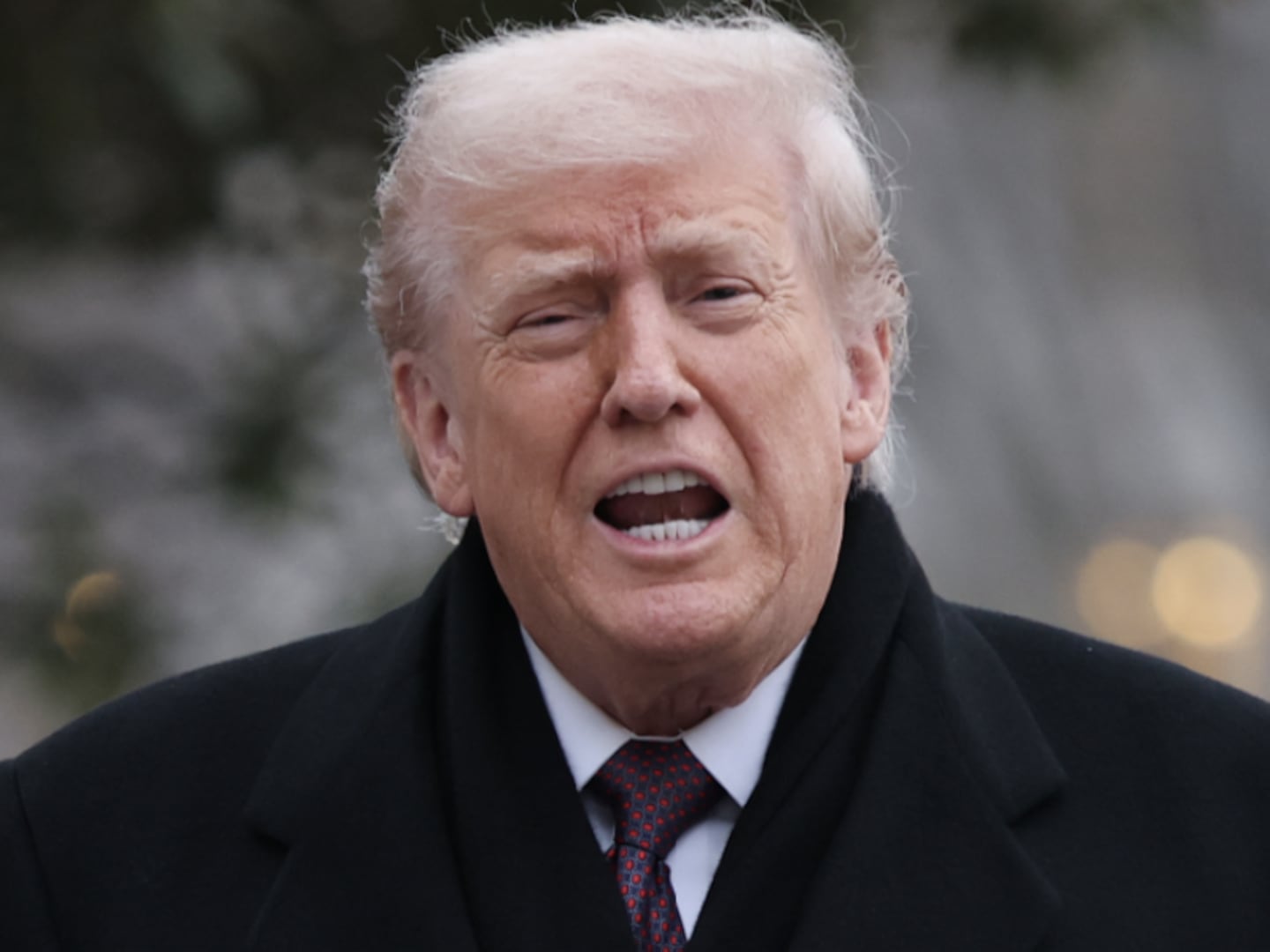Gemma Hickey is proof that the pen is mightier than the sword.
Last year, when the Canadian non-binary advocate applied for a new birth certificate in the province of Newfoundland and Labrador, Hickey refused to check off either the “male” or the “female” box.
“There wasn’t a box for me,” Hickey told The Daily Beast. “So, I just created one with pen and checked it off and told them that this is what I wanted.”
Hickey, who prefers the gender-neutral pronoun “they,” was prepared for a fight.
But as CBC News reported, the province ultimately amended the Vital Statistics Act to add an additional gender option to the birth certificate application.
In December, Hickey finally received their new birth certificate, with a simple but meaningful “X” in lieu of “male” or “female.” It was the first non-binary birth certificate in Canada.
Months later, the power of Hickey’s penstroke continues to be felt across the country.
On Monday, non-binary filmmaker Joshua M. Ferguson became the first person to receive a non-binary birth certificate in the province of Ontario. Ferguson, who also prefers pronoun “they,” had filed a human rights complaint for the birth certificate last year, as CBC News noted, successfully persuading the province to change its policy.
Ferguson told The Daily Beast that they are “celebrating” the moment but also looking ahead at all the work left to be done for Canadians who do not identify as either exclusively male or female.
“I do think Canada seems to be becoming more and more of a leader on this [issue],” said Ferguson. “But of course, the majority of our provinces still have zero recognition of non-binary people.”
Still, compared to the United States, Canada is light-years ahead on legal recognition for non-binary people, and for transgender people more broadly. As of August 2017, Canada began allowing the non-binary gender marker “X” on passports.
Two provinces and one territory—the Northwest Territories, Newfoundland and Labrador, and now Ontario—now allow “X” on birth certificates.
The most populous of the three, Ontario, has allowed an “X” on driver’s licenses for the past year. Many of these changes happened proactively, with strong government support for the individuals who asked for them.
Meanwhile, in the United States, only D.C. and the West Coast have begun allowing for an “X” gender marker on various forms of government documentation, as The Daily Beast has previously reported. Non-binary U.S. passports are not available.
When asked why Canada is so far ahead of its neighbor to the south on non-binary issues, Hickey made an obvious but necessary point: “If we compare our Prime Minister to the current U.S. president, it’s very different here in Canada.”
Whereas the Trump administration has spent two years attacking transgender restroom use, transgender military service, and transgender health care, Canadian Prime Minister Justin Trudeau loudly supported a sweeping transgender rights bill that easily cleared the Canadian Senate last summer.
That disparity is reflective of Canada’s tendency to lead the United States on LGBT rights: Canada legalized same-sex marriage nationwide, for example, nearly a decade before the United States did the same.
But non-binary Canadians still find themselves caught in a strange patchwork of policies that vary by province, even as the federal government begins issuing “X” passports.
“It’s totally frustrating,” non-binary writer Sam K. MacKinnon told The Daily Beast. “I know that we exist and that we are a strong, resilient community, but when forms are constantly telling us that we have to choose a box that doesn’t correspond to our identity, it feels like ardent erasure of who we are.”
Earlier this year, MacKinnon, who lives in Canada’s fifth largest province of Manitoba, asked the provincial premier to alter the Vital Statistics Act to allow non-binary gender markers on ID documents, as CBC News recently reported.
But it was Manitoba Opposition NDP leader Wab Kinew who responded to MacKinnon’s request by introducing legislation in April that would change the Vital Statistics Act.
MacKinnon, who prefers the pronoun “they,” told The Daily Beast that they hope the bill becomes law so that they won’t have to follow in Ferguson’s footsteps: “Other provinces have already set the precedent for introducing this non-binary option. I was hopeful that our province could do this preemptively without a human rights complaint.”
If it seems like non-binary Canadians are closely following each other’s advocacy efforts, that’s because they are. Hickey, Ferguson, and MacKinnon have all supported each other as they push for non-binary acceptance within their respective provinces.
“The only reason why I was able to send my letter and do what I did was because of Joshua [Ferguson] and Gemma [Hickey],” MacKinnon told The Daily Beast.
“I felt alone until Joshua contacted me and then they applied as well and then it felt like we were in it together, you know?” said Hickey, who has been pleased to witness what they describe as the “ripple effect” of their successful birth certificate application.
“Sometimes it starts with some individuals and then it grows from there,” said Ferguson of the Canadian non-binary movement.
Indeed, for every Hickey, Ferguson, or MacKinnon, there are thousands of non-binary Canadians who may not yet feel comfortable being as vocal as these three.
Out of the 27 thousand respondents to the 2015 U.S. Transgender Survey, a full 36 percent identified as non-binary rather than as transgender men and women.
That would suggest that non-binary people are not a tiny minority within the transgender movement, but rather a vital part of it. The present landscape in Canada, however, is proof that some who readily accept binary transgender people still find non-binary acceptance to be an added challenge.
Even in a country where a reported 84 percent of people supported the addition of gender identity to the Canadian Human Rights Act—as the CBC noted—non-binary advocates have faced resistance and questioning.
Hickey told The Daily Beast that they received “death threats” and “hateful messages” when news of their new birth certificate broke, but that the “supportive messages” still outnumbered them.
“In some sense, people want to be supportive,” said MacKinnon of their experiences as a non-binary person in Manitoba. “But they kind of feel like it’s a whole new world. They just don’t understand. They’re having to revisit their values of [how] they categorize people in their minds, and that’s a really tough thing for people to do.”
As it stands, non-binary Canadians are facing similar challenges updating their identity documents as binary transgender people in the United States.
Transgender men and women in the U.S. can update the gender markers on their passports and in the Social Security Administration database without undergoing surgery.
But although the process for updating federal ID has been streamlined for binary transgender Americans, state-level policies vary wildly: Some states, like Tennessee, will not allow birth certificates to be changed even after surgery. Others, like California, allow birth certificates and other forms of ID to be updated more easily.
In Canada, every province allows transgender men and women to update their birth certificates without surgery. But non-binary Canadians are left fighting not just for the right to change their documents, but for a whole new category on those documents.
That’s a fight that Hickey, Ferguson, and MacKinnon know will take time. “There have been a lot of queer activists who laid the groundwork in Canada and in the U.S.,” said Hickey. “I think times are changing and we’re moving in that direction. I think we’re ready.”
Ferguson told The Daily Beast that they have already applied for a non-binary gender marker on their health card and driver’s license in British Columbia, where they currently live.
If that effort proves successful, over half of Canada’s population would live in a province that allows some sort of non-binary gender marker on provincial ID. Ferguson is determined to see that effort through—and then move on to the next fight.
“There isn’t an end goal for human rights or for the evolution of humanity,” they said. “It’s a good thing that we continue to evolve as a society, and that our culture becomes more inclusive of difference.”






